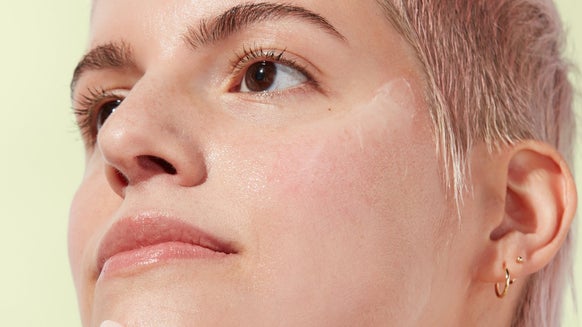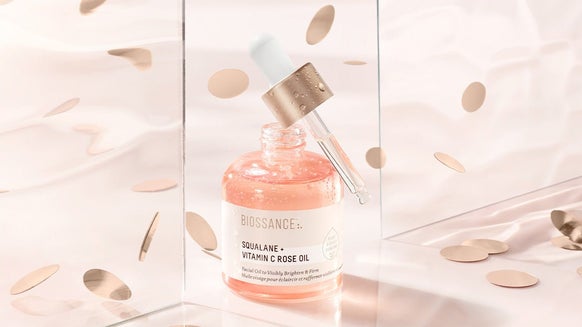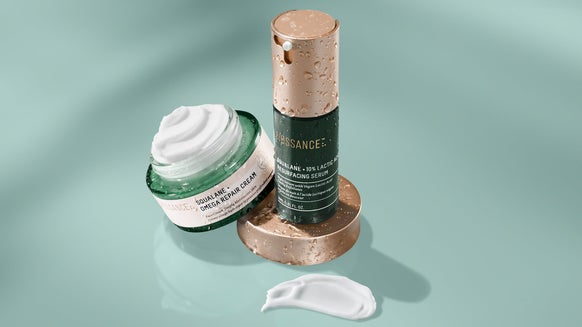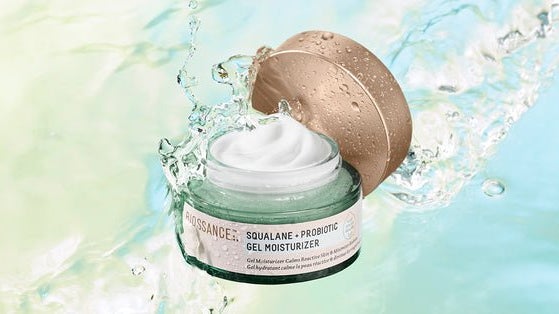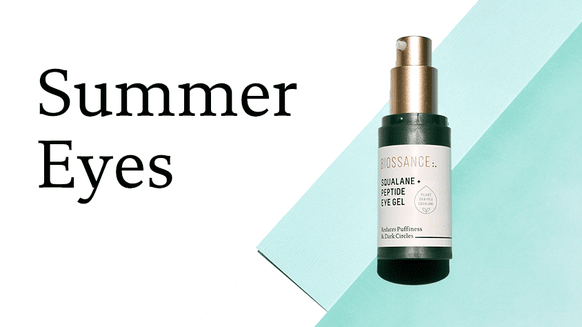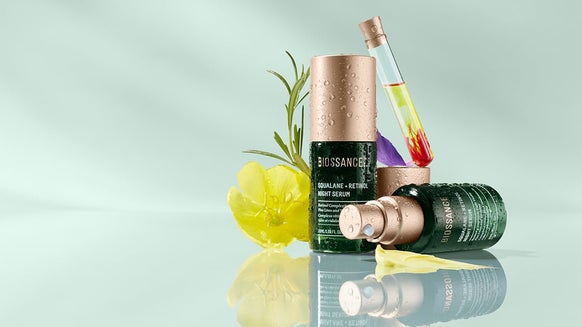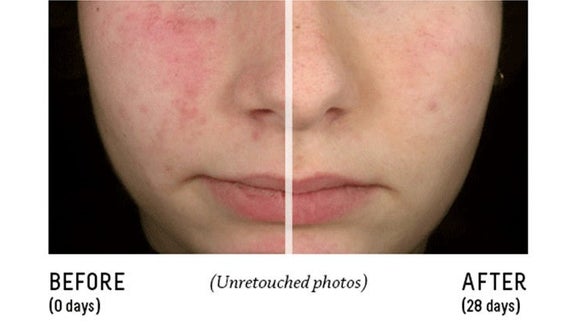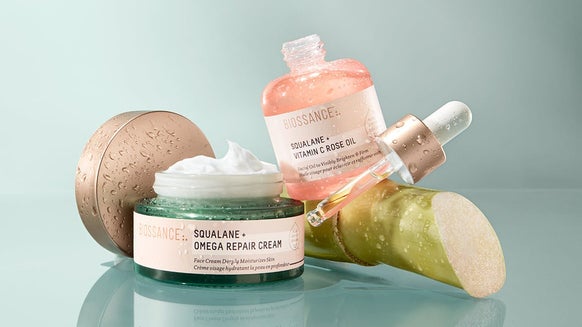Beyond Beauty: Living Greener + Cleaner

We hope our recent clean beauty blog posts and Clean Beauty Cheat Sheet have been valuable resources in navigating the (often complicated) world of clean beauty. But why stop there? Think about all the things you come in contact with every day (Laundry soap! Your clothes! Water bottles!) From fashion to feminine care, learn about ways to make your life just a bit greener and cleaner from our like-minded brand friends.
The Little Market
Tell us about The Little Market and its mission to empower women through Fair Trade products?
The Little Market is a nonprofit online shop founded by women to empower women. We seek out partnerships with artisans who follow fair trade practices. We work closely with our artisan partners to curate and design handmade goods. Our artisan partners preserve cultural traditions that are passed down through generations. Our online platform allows us to share these beautiful products with a wider audience than the artisans are able to reach within their own communities. With every purchase of the fair trade goods, we’re creating sustainable jobs and a positive, long-lasting impact. Artisans are able to support themselves and their families while making their beautiful goods. We have a fair trade expert on our team who reviews each application and does research in the communities to confirm that the artisans are earning a fair wage and working in safe and comfortable environments. We are a proud member of the Fair Trade Federation — a trade association working with the World Fair Trade Organization to create mutually beneficial, equitable, and sustainable trading partnerships. By shopping fair trade, our collective efforts generate meaningful opportunities that change lives worldwide. Each purchase helps to combat poverty, empower artisans and their families, and create social justice.
What is Fair Trade, and why should people support buying Fair Trade products?
Fair trade focuses on ethical, environmentally conscious, and sustainable production. Through fair trade and equitable trading partnerships, artisans and other small-scale producers have a platform to sell their goods for a sustainable price. When shopping for fair trade goods, consumers are supporting talented artisans, fair and prompt purchases, safe work environments, and the preservation of cultural techniques.
What might surprise people about the sustainability of fair trade home goods?
Many of our items are made using locally sourced, sustainable materials. Several of our baskets are made using locally sourced plants, which means that they’re supporting a local economy and environmentally friendly. For many of the products we carry, rather than buying new fabrics that are imported, artisans are often able to go to local markets and buy repurposed materials. Any opportunity to up-cycle fabrics is environmentally conscious. Our new silver baskets are made from clean re-purposed snack wrappers. Rather than having to throw away these wrappers, they can be reused to create beautiful baskets.
What are things people can do to change their shopping habits towards a more sustainable way of life?
Shop while using reusable bags. We recently launched, and are about to launch additional, reusable bags with a variety of phrases and names. They are durable and functional. Shop for products that are made using repurposed materials. For instance, our bags made by female refugees in Texas are made from vintage and recycled textiles. Many of our durable and hand-woven baskets from Senegal are made using recycled plastics. Our beautiful huipil and corte bags, pillows, and frames are made by women in Guatemala who create these handmade products using fabrics from their gorgeous shirts and skirts. The designs are intricate, colorful, and one-of-a-kind. And our glassware from Mexico is hand-etched and hand-blown from recycled glass. Learn about the story behind the product. We love sharing the stories of our artisan partners on our website and on our blog.
Cora
Tell us about Cora and its mission in terms of empowering women and girls.
Our mission is to revolutionize the period experience for women everywhere. Domestically, that means innovating on a product that hasn't seen change in decades. Unlike many conventional tampons, Cora tampons are 100% certified organic cotton and come in chic, modern packaging (not crinkly pink plastic). On a wider scale, revolutionizing the period experience globally means helping girls stay in school when they get their periods. Many girls in places like India and Africa will miss a week or more of school while on their periods because they lack access to sanitary pads. With pads, their attendance increases by as much as 90 percent. For every Cora box purchased domestically, Cora donates a month's worth of sustainable, plant-based pads to girls in India and Kenya.
What might surprise people about feminine hygiene products?
The most common misconception among women is that if a product is available on shelves that it is being carefully regulated for health and safety. But that's simply not the case. Specifically, the feminine care industry lacks transparency and regulation, meaning women don’t get the full picture on the products they use. Both the materials and chemicals commonly found in non-organic tampons—and their effects on women’s bodies—are largely hidden from consumers.
Why should someone use organically made tampons?
Conventional cotton is the world’s dirtiest crop due to its heavy use of the most dangerous pesticides and insecticides to human and animal health.
The majority of tampons today are made with conventional cotton and synthetic materials like Rayon and Polyester, meaning they often contain toxic chemicals like dioxins, chlorine bleach, and phthalates, and we don't have research to confirm that exposure to these materials and chemicals doesn't have an impact on our health. These chemicals have been linked to reproductive disease, infertility, endometriosis, endocrine disruption and certain cancers.The vagina is also the most absorbent part of your body, and substances placed in the vagina can pass directly into your bloodstream.
100% certified organic cotton tampons provide the assurance that you won't be putting potentially harmful substances into your body during your period. Cora tampons are certified by the Global Organic Textile Standard--one of the most rigorous organic certifications in the world. They ensure that the cotton used is not only organic but was also produced ethically without forced or child labor.
What are things people can do to change their shopping habits towards a more nontoxic and/or sustainable lifestyle?
So much of our ability to keep ourselves healthy lies in having a deep relationship with our bodies, having reverence for their awesome power, and choosing to use products that honor that. To me, that means seeking out products that are made ethically and with ingredients that are pure, simple, and healthy.
Fisher Found
Tell us about Fisher Found and how it’s leading innovation in terms of sustainability.
Fisher Found is the embodiment of EILEEN FISHER’s commitment to circularity and a future without waste. As an evolving and innovative take-back and reuse program, Fisher Found collects worn or torn EILEEN FISHER garments from our customers to ensure that nothing we create goes to landfill. We ask for our clothes back because we believe that their value doesn’t end with their first wear. We start by designing our EILEEN FISHER product with high quality and healthy materials – timeless designs, that’ll stay in your closet longer. When you’re done with them, Fisher Found fosters innovation so when our clothes can’t be reworn or renewed, they can be remade to start their journey all over again.
What inspired this idea? How does the process work?
EILEEN FISHER’s take-back program started in 2009 under the name Green Eileen as a way for employees to pass their clothing on to a new owner. Shortly after, the program was extended to our customers, asking them to bring back their unwanted EILEEN FISHER clothes in exchange for a $5 credit per piece and a promise that the profits from our resale program will be donated to organizations supporting women, girls and the environment.
Fisher Found is now a holistic take-back and reuse program. EILEEN FISHER garments can be brought back to any EF retail store, or sent directly to one of our two recycling centers (visit www.fisherfound.com for more info). The clothing is then cleaned and sorted. What is in great condition and ready for a new life is sold as “Reworn” product in our Fisher Found stores, fisherfound.com and in other select locations. Garments that need a little fixing to be wearable again are “Renewed” by mending holes or covering stains with natural dyes. The rest become raw material for one-of-a-kind designs that are “Remade” in our Tiny Factory in Irvington, NY or in partnership with other like-minded companies we support.
While we don’t yet have solutions for all of the garments we take-back, or all of the scraps we create during Remade production, we are holding onto everything because where others see waste, we see possibility.
What might surprise people about sustainability in the fashion industry?
We don’t want sustainability to be our edge, we want it to be universal, but that can mean admitting some hard truths. The fashion industry has some big battles when it comes to sustainability- we’ve got to reduce waste, look at material health, support the men and women in our supply chains and create product that is more inclusive. These are all complicated problems. Luckily, we believe business can be a movement and we’re seeing more and more companies coming together to tackle these problems, and more and more customers demanding it! It’s never been easier to be a conscious shopper or an ethical business. Together, we will make sustainability the norm of the fashion industry.
Are there certain fabrics people should avoid or embrace?
At EILEEN FISHER we love natural fibers that are grown organic and are healthy for people and planet. We embrace safe dyes that keep toxins out of our water and our bodies, and we use fibers from animals that are humanely raised - on land that is sustainably managed. That being said, sometimes we need the durability that synthetic materials provide. We look for recycled nylons and polyesters so that we can ensure we are reusing non-renewable resources for as long as possible.
Consumers can look for products that are made from either all natural, or all synthetic materials. When we get into blending the two, we make fiber recycling harder on the next go around.
What are things people can do to change their shopping habits towards a more sustainable way of life?
We believe that we can be a successful business, while still having a positive impact on the world. In the same way, people can be consumers while still embracing a sustainable way of life. When we bring mindfulness to shopping, we can make decisions that help to shift the entire industry. Take a second, and remember that the little choices we make every day, matter.
- Be mindful of the materials your clothing is made from and the chemicals that they’re dyed with.
- When you can, shop secondhand to keep valuable resources out of the landfill - clothing isn’t disposable.
- Think about the people behind the clothes you buy – our goods are not made by machines alone. Ask questions about who, where and how your clothing was made.
- Live your values and support companies that support causes you care about.
bkr
Tell us about bkr and how it’s leading innovation in terms of sustainability.
bkr is the beauty essential that will change the way you hydrate forever. It’s made of glass and silicone and the core product design hasn’t changed since 2011. When we launched bkr, the most chic reusable water bottles on the market were basically colorful camping equipment made of metal or plastic. When we told people we were going to make a luxury water bottle made of glass and that it would change everything, they thought we were crazy. They told us no one would want to drink from glass. But we knew glass was the most environmentally responsible and inert material and that everything tasted better from it, so we didn’t listen. When we said our bottle would have a small mouth that was the size of the disposable plastic water bottles that we were all addicted to, they also thought we were crazy. But we knew the world was used to drinking from a small mouth with a simple twist cap and we wanted to create a healthy and responsible alternative to disposable plastic, so we didn’t listen. And when we made a soft, solid sleeve out of silicone people told us they would be too plain and they had to have some sort of cutout design or they wouldn’t catch on. We really didn’t listen to that either. We followed our gut and made the bottle we wanted to use that would replace our personal addiction to plastic. By just trusting ourselves and creating authentically, responsibly and with perfectionist attention to detail, now over six years later we hear all the time that people love their bkrs so much that they haven’t bought disposable bottles for years. bkr is a cult phenomenon that’s making a positive impact.
Why was bkr founded and what’s its mission?
We met in law school in San Francisco and we’ve been friends ever since. Many years later we started bkr. Both our moms had gorgeous skin our whole lives and they drank tons of water so we were always aware that proper hydration is the foundation to your beauty regimen. But, like everyone else at the time, we were drinking from plastic. It didn’t make sense that people who care so much about what they eat and put into their bodies were essentially drinking from trash. We were into everything organic, local and safe, yet we were drinking out of chemical plastic. We couldn’t find a reusable bottle we loved, let alone liked. And to us, drinking out of metal felt like nails on a chalkboard - it smelled weird and tasted metallic and you couldn’t put it in the dishwasher and you couldn’t see if it was truly clean. So we made exactly what we wanted: something beautiful, effortless, sheer, pure and chic. We knew if we wanted it, other people would too. And today our mission is the same: to make the chic hydrated and the hydrated chic.
Why is it so important to choose your water bottle material carefully (in terms of sustainability and one’s health)?
If you’re drinking water all day — which you should be if you want beautiful skin — the last thing you should do is marinate it in chemicals, or carry it in opaque materials that you can’t disinfect properly and you can’t see inside of. Glass is so much healthier and better for you and for the environment. It's chemically inert; it doesn't alter the taste of its contents, and doesn't allow any unsafe chemicals to leach and make you sick. And it's a fully recyclable material. It can be recycled endlessly and recovered glass is used as the majority ingredient in new glass containers. And without question, everything tastes better out of glass. bkr's silicone sleeve is perfectly soft and grippy—and non-toxic. It protects the glass, insulates whatever's inside it, is dishwasher safe, clean, beautiful, minimal and fully recyclable.
It’s so important to steer clear of disposable plastic bottles. Most people have heard of BPA -- a plastic hardener, synthetic estrogen, and a frankly terrifying chemical found in plastic water bottles. It’s an endocrine disrupter that leaches from plastic into our food and drinks. It’s been linked to a ton of health problems including an increased risk of cancer, obesity, early onset puberty, diabetes and has been linked to skin conditions like melasma or deep discoloration. Plastic hardeners eat away at your teeth too. Basically it’s making us sick, ugly and fat. It’s also been shown to affect fertility — and brain and behavioral development in children. Pretty awful all around. Also, if your plastic water bottle is BPA-free, chances are it has another chemical in it that in five years we’ll find out is even worse.
What are things people can do to change their shopping habits towards a more sustainable way of life?
Founding bkr has really made us conscious of buying less things and only having the things we love. So the obvious advice we give everyone is to sip water from a bkr all day and say “no” to disposable drinks. Beyond that, disposable clothes are a no-go as well. We prefer to invest in pieces that will stand the test of time and not end up in a fashion landfill. It’s the most green fashion thing you can do. And support brands like Stella McCartney that consider the effect their choices have on the earth and allow you to be eco without sacrificing style.
BERG + BETTS
Tell us about BERG + BETTS and how it’s leading innovation in terms of sustainability. Why did you decide to do this?
BERG+BETTS is a sustainable watch brand that crafts every timepiece out of surplus leather off cuts that would otherwise go to waste. Since watch straps require such a small amount of material, we are able to collect scraps of designer leather from factories around the world and transform still new “waste” into fashion forward timepieces. We produce zero textile waste and creatively utilize what would otherwise go to the landfill.
Where do you get your materials, how does the process work?
We utilize the leather off cuts from multiple facilities around the world that have off cuts from the production of things like car seats, hand-bags and boots to name a few.
We have always believed in transparent supply chains and we take the working conditions of our suppliers very seriously. Our watch suppliers are carefully chosen and are members of Sedex, a not for profit organization dedicated to driving improvements in responsible and ethical business practices in global supply chains. They are regularly audited on labour standards, health and safety, environment, compensation and business ethics to ensure a happy, healthy workplace.
What might surprise people about the sustainability of their fashion accessories?
I would say the same thing that surprised me about the entire fashion industry which is the amount of waste that goes directly into our landfills. I know the EPA estimates that the average American throws away 70lbs of clothing per person per year! When you add the commercial and manufacturing waste on top of that, the numbers are alarming and not sustainable long term.
The good news is that the industry is full of responsible innovators who are finding new ways to produce products that satisfy a new kind of consumer that wants to know where their products are made, how it’s made, and who is making it. Labels are taking less profit in order to source suppliers that adhere to strict ethical standards and they are finding creative ways to source textiles such as deadstock, factory off cuts, or upcycling. It’s remarkable to see how over the last 5 years sustainable and ethical fashion has become less of a trendy buzzword, and more of an essential everyday practice for many big brands in an industry that desperately needs change. Fast fashion will not stop overnight, but it’s the dialogue and the small changes that will eventually lead to a fashion revolution.
Are there certain fabrics or materials people should avoid or embrace?
I am not an expert on sustainable fabrics but I can say that we should all embrace and support labels who are putting in the effort for more sustainable products. That goes beyond clothing and accessories too; think furniture, skin care, food. As consumers we have the power.
What can people do to change their shopping habits towards a more sustainable way of life?
I think the most important thing you can do for a more sustainable lifestyle is to buy good quality things less often. Something that has helped me get on track is to look at everything I buy and ask myself “will I wear this piece at least thirty times?” This one questions will help cut down on the crap filling up your closet without you even noticing the shift. Something else that has been helpful for me is to follow sustainable lifestyle bloggers along their journey. They lead me to new innovative brands that I otherwise would not have known about.

As a lifestyle writer and journalist, I love sharing my passion for ocean conservation and obsession with clean beauty. I’ve tried almost every trend and ingredient, and Biossance’s science-backed formulas are the only ones that consistently calm my reactive skin and make it smoother, clearer, and healthier. I’m so excited to be on this journey of skincare innovation with Biossance, and to share it with you!
